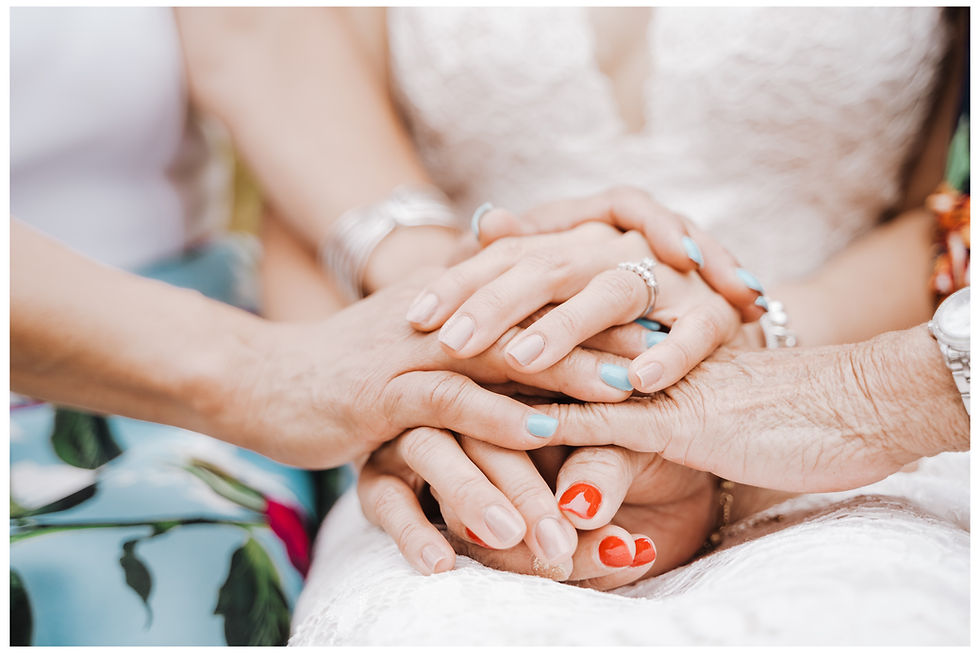Support for Caregivers is Vital To Their Own Health
- Cyndi

- May 15, 2023
- 2 min read

'Family Caregiver' is a title once known by a handful of the population, but its relevance is rapidly growing. In a role that can be fulfilling yet simultaneously challenging, caregivers often must respond quickly, under duress, and with a constant awareness that a loved one's life is in their hands, a role not taken lightly.
Despite their critical role, family caregivers are under tremendous mental and physical stress, and the topic of their self-care is often overlooked by themselves and others. As a former family caregiver, I understand the reasons why. Days are full of tasks and emotions, fielding questions, and making difficult decisions. A friend's suggestion to "take care of yourself" can push a caregiver over the edge because the idea of one more thing' to-do' can be exhausting.
However, when the needs of a caregiver aren't addressed, the consequences can be severe, not only to the caregiver but ultimately to their loved ones. Practicing self-care is not selfish—it's vital.
Far too often, caregivers put themselves last while wrestling with various emotions. The reality is, caring for a loved one when your emotional and physical tank is empty is a time bomb. The ability to react quickly and make difficult decisions is compromised, and with the inevitable oversights, the feeling of guilt arises, self-doubt comes into play, and the cycle continues.
Self-care for a caregiver does not have to be a significant event, and even the smallest acts will have a positive impact. It can be as simple as writing in a journal, reigniting a hobby that can be done while staying with a loved one, or starting the day early to have time alone or have coffee with a friend. Mindfulness and movement have also proven to be powerful tools for caregivers. Three simple deep breaths can bring much-needed calm. A walk outdoors not only has health benefits, but it can also be an opportunity to regenerate.
Self-care is also about connecting.
Talking with friends and family or a counselor can be a tremendous support. Another powerful connection is being with other caregivers experiencing similar feelings. The ability for a caregiver to discuss what they are going through with others who understand, and without the concern of being judged, can be lifesaving. We cannot overlook those connections.
You don't have to do this alone; I encourage you not to.
Connections are powerful, and self-care is lifesaving for you and your loved ones.
Hugs,
Cyndi Mariner
Breathing Spaces

Comments